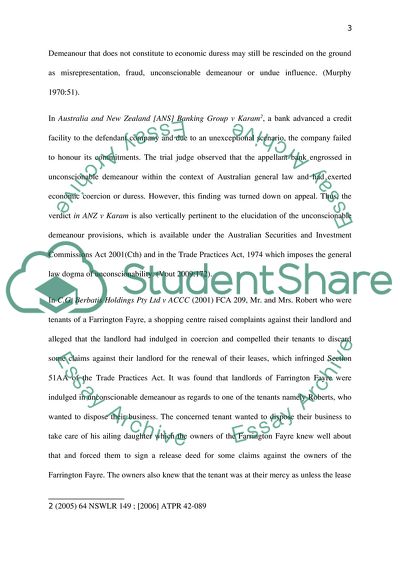Cite this document
(Economic Duress and Unconscionable Conduct under Australian Laws Essay - 14, n.d.)
Economic Duress and Unconscionable Conduct under Australian Laws Essay - 14. https://studentshare.org/law/1806516-business-law
Economic Duress and Unconscionable Conduct under Australian Laws Essay - 14. https://studentshare.org/law/1806516-business-law
(Economic Duress and Unconscionable Conduct under Australian Laws Essay - 14)
Economic Duress and Unconscionable Conduct under Australian Laws Essay - 14. https://studentshare.org/law/1806516-business-law.
Economic Duress and Unconscionable Conduct under Australian Laws Essay - 14. https://studentshare.org/law/1806516-business-law.
“Economic Duress and Unconscionable Conduct under Australian Laws Essay - 14”. https://studentshare.org/law/1806516-business-law.


